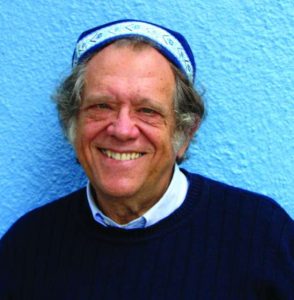
by Cara Judea Alhadeff, PhD
Contact the author: cara@carajudea.com
“A mystical, magical adventure with a serious message that should spur conversations.” Kirkus Review
“Impressiv e.” DR. NOAM CHOMSKY, author of Manufacturing Consent: The Political Economy of the Mass Media
e.” DR. NOAM CHOMSKY, author of Manufacturing Consent: The Political Economy of the Mass Media
 “Compelling.” EVE ENSLER, author of The Vagina Monologues
“Compelling.” EVE ENSLER, author of The Vagina Monologues
“Astonishing.” PAUL HAWKEN, author of The Ecology of Commerce

Zazu Dreams is a “fascinating book. … This is a real cosmic adventure—through space, through time, through the human heart.” BILL McKIBBEN, author of The Comforting Whirlwind

“Zazu Dreams is a fascinating story that launches a new genre of book called edutainment. Amazing Research!” ARUN GANDHI, Founder/President, M. K. Gandhi Institute for Nonviolence / Grandson of Mahatma Gandhi
“Zazu Dreams reclaims the power of language as both a poetic intervention into politics and storytelling and as a powerful force for reclaiming the radical imagination. Zazu Dreams moves acr oss disciplinary borders, collapses genres, unsettles how we think about the planet and the need to keep it going, and inspires and energizes a sense of individual and social agency and collective hope as it unfolds. This is a brilliant book whose relevance cuts across generations, merges the space between adult and child, and gives the poetic as a force for struggle and hope a new and urgent political register.” DR. HENRY GIROUX, author of Disposable Futures: Violence in the Age of the Spectacle
oss disciplinary borders, collapses genres, unsettles how we think about the planet and the need to keep it going, and inspires and energizes a sense of individual and social agency and collective hope as it unfolds. This is a brilliant book whose relevance cuts across generations, merges the space between adult and child, and gives the poetic as a force for struggle and hope a new and urgent political register.” DR. HENRY GIROUX, author of Disposable Futures: Violence in the Age of the Spectacle
“Zazu Dreams bursts forth from its cover, showering the reader with art, song, language, spirituality, joy, and history. In the spirit of Le Petit Prince, the door to adult reflection is opened by a child guide. With the query, “Who needs imaginary monsters or giants or evil empires when corporations like Nestle and PepsiCo, Merck and Monsanto destroy everything in their path?” Zazu Dreams challenges us with the notion that knowledge of evil, even for the very young, is the clearest path to good. From climate change to Big Oil, war  to slavery, Zazu faces the worst of humanity, while simultaneously basking in the beauty that constantly amazes and surrounds, teaching that we must live in harmony with and as caretakers of this earth and all upon it, if we wish the same in return. Three generations take us on a journey to be enjoyed by all ages. A grandmother’s artwork joins a mother’s storytelling to create an adventure for her son into what it means to be human that is unrestricted by space, time
to slavery, Zazu faces the worst of humanity, while simultaneously basking in the beauty that constantly amazes and surrounds, teaching that we must live in harmony with and as caretakers of this earth and all upon it, if we wish the same in return. Three generations take us on a journey to be enjoyed by all ages. A grandmother’s artwork joins a mother’s storytelling to create an adventure for her son into what it means to be human that is unrestricted by space, time or prejudice, only his—and through him our own—limitless imagination.“ ANTONIA JUHASZ, author of The Tyranny of Oil.
or prejudice, only his—and through him our own—limitless imagination.“ ANTONIA JUHASZ, author of The Tyranny of Oil.
“A thoughtful, insightful, meaningful exploration of so many of the dimensions of what it is to be human in this world. Brilliant!” THOM HARTMANN, author of The Last Hours of Ancient Sunlight
“Cara Judea Alhadeff is remarkably unafraid to face up to the controlling influences of the chemical industry on the US government, causing great harm to our nation’s children who are suffering from exposure to chemicals in their food, water, and vaccines.  Alhadeff sees the world from a perspective that few others can achieve– addressing issues of toxic chemical exposure and the way the forces in power manipulate the population to fall in line towards unreasonable and in many cases unethical goals. Her original thinking will have significant impact on society.” DR. STEPHANIE SENEFF, Senior Research Scientist, MIT Computer Science and Artificial Intelligence Laboratory
Alhadeff sees the world from a perspective that few others can achieve– addressing issues of toxic chemical exposure and the way the forces in power manipulate the population to fall in line towards unreasonable and in many cases unethical goals. Her original thinking will have significant impact on society.” DR. STEPHANIE SENEFF, Senior Research Scientist, MIT Computer Science and Artificial Intelligence Laboratory
 “[F]abulous! … A powerful and visionary story wonderfully told and beautifully illustrated.” DAVID W. ORR, author of Dangerous Years
“[F]abulous! … A powerful and visionary story wonderfully told and beautifully illustrated.” DAVID W. ORR, author of Dangerous Years
Zazu Dreams is “… absolutely fascinating with superb drawings and an innovative juxtaposition between a very serious subject and its narrative unraveling as a childlike adventure. … [A] totally original concept for a sociologically relevant topic. … The book is an extraordinary fusion of fanciful allegory, childhood perception, ecological prophecy and sociological parable … all woven together in a profound tapestry of consummate scholarship. Richly enlivened by the imaginative illustrations of Micaela Amato, Zazu’s youthful curiosity propels him through a global succession of apocalyptic encounters and joyfully elevating adventures. In the most poetic way, his ‘dreams’ embody a microcosm of global conflicts, premonitions, celebrations and spiritual aspirations. The unique accomplishment of this book is its capacity to simultaneously bridge the human condition through the innocent perceptions of a child and the world-weary apprehensions of an adult. Zazu Dreams is definitely an enlightening story for all ages.” JAMES WINES, Green Architect Founder of SITE architect
most poetic way, his ‘dreams’ embody a microcosm of global conflicts, premonitions, celebrations and spiritual aspirations. The unique accomplishment of this book is its capacity to simultaneously bridge the human condition through the innocent perceptions of a child and the world-weary apprehensions of an adult. Zazu Dreams is definitely an enlightening story for all ages.” JAMES WINES, Green Architect Founder of SITE architect
“Zazu Dreams thoughtfully and colorfully addresses the crucial need for young people to develop feelings for humanity and all life.” DR. JAMES E. HANSEN,  Director of the Program on Climate Science, Awareness and Solutions, Earth Institute, Columbia University
Director of the Program on Climate Science, Awareness and Solutions, Earth Institute, Columbia University
“An original and intriguing book, history meets the age of the anthropocene in a big bang in Zazu Dreams. Whimsical a nd instructive, fable-like and scholarly, this is a children’s book that spares the young neither the bad news nor hope for the work ahead. It is a phantasmagoric read for adults and a visual feast for all generations!” DR. DALIA KANDIYOTI, author of Migrant Sites: America, Place, and Diaspora Literatures
nd instructive, fable-like and scholarly, this is a children’s book that spares the young neither the bad news nor hope for the work ahead. It is a phantasmagoric read for adults and a visual feast for all generations!” DR. DALIA KANDIYOTI, author of Migrant Sites: America, Place, and Diaspora Literatures

“In Zazu Dreams: Between the Scarab and the Dung Beetle, Dr. Cara Judea Alhadeff elegantly tackles complex subject matter. A book for all ages, Zazu Dreams touches upon the complicated nature of human existence, from one end to another, with intelligence and beauty.” JOSEPH JENKINS, author of The Humanure Handbook
“…very originally crafted and beautifully illustrated…” DR. KAREN BARAD, author of Meeting the Universe Halfway: quantum physics and the
entanglement of matter and meaning.
“We’re in the midst of damaged life, and continuing with the same old modes of thought and imagination will almost certainly allow the damage to continue. Zazu Dreams gene rates a new imaginary that looks beyond sustainability to genuine transformation. Rather than survival as we are, Zazu Dreams raises the possibility of a creative and marvelous new world.” DR. CLAIRE COLEBROOK, author of Death of the PostHuman
rates a new imaginary that looks beyond sustainability to genuine transformation. Rather than survival as we are, Zazu Dreams raises the possibility of a creative and marvelous new world.” DR. CLAIRE COLEBROOK, author of Death of the PostHuman

“Every thought, word and action we put forth, no matter how tiny or huge, whether in the streets or in offices, underground or above, either hurts or helps the wave of prosperity to ensure a bright future for humanity, and for all life on this planet & beyond. Zazu Dreams is a beautiful example of keeping our work and our play focused on our most crucial mission, securing our survival and our freedom. Let every breath we take help that wave.” GREGORY “SHKG / HUMPTY-HUMP” JACOBS, Digital Underground

“Zazu Dreams is a truly magical tale for people of all ages and all faiths (or none)—a magnificent way to introduce children to the reality of the environmental crisis while simultaneously teaching some of the deep spiritual messages that are the common heritage of humanity. Your life and your children’s lives will be greatly enriched by reading (and studying) this amazing story and its accompanying commentary!” RABBI MICHAEL LERNER, author of Jewish Renewal: A Path to Healing and Transformation
P
IN THE PRESS:
Dreaming of Home
‘There is something peculiar about this book: the fact is the cover gives it away right from the start.’[1] In the foreground, a young man, Zazu, holds his malamute husky, Cocomiso, both atop their friend, a humpback whale. In the background, a tableau of the contemporary grotesque: three sewers vomiting effluent into the sea on the left balanced by five industrial chimneys spewing noxious fumes into the air on the right. Between these man-made geysers, a moon hangs: low, heavy, ominously red.
Zazu Dreams: Between the Scarab and the Dung Beetle, A Cautionary Fable for the Anthropocene Era is not a bedtime story book for the helicoptered and coddled — whether young or old — sensitized to microaggressions and needy of trigger warnings. Zazu dreams up a proper fairy tale — in which the comforting is enfolded within the scary and the beautiful is twisted into the ugly. Zazu dreams in images and in words, in philosophical musings and in historical forays — Zazu dreams to awaken us from our smug and slothful slumber.
Boy, dog, and whale traverse oceans, crisscross centuries, fly towards the sky and dive into the deep, their restlessness, their rootlessness but a curtain, a veil, that hides a deeper rootedness. Their condition of exile is now fully general — none is at home anywhere, anymore. And yet, that condition is precisely what permits a visceral grasp of what binds those who have little in common. Zazu grows up among a people who speak Ladino, a linguistic mosaic composed of medieval Spanish, Greek, Turkish, Hebrew, Arabic, and more. Zazu thus incarnates the fate destined for us all; of those without a homeland. It is language or, perhaps more correctly, speech, that is the ground on which one ‘I’ emerges from a conversing ‘we’; a ‘we’ that itself is stutteringly convoked beneath and beyond the afflictions imposed by family, tribe, society, nation, and even species. The tapestry of speech may well be infinite— the scream of monkeys tortured in cages for shampoo, the songs of humpback whales, the murmur of a cooing mother, the mutterings of a philosopher, the yells of a child at play — yet, one founds the quiet of home on the sound of words.[2]
The terrestrial has been exiled from the earth. The prime mover of this deterritorialization is the Corporation. Despite its name which suggests bodies and earthiness, the corporation is an ET par excellence. Once a legal fiction created by man, it now rules over man as an amortal Demon-God. The corporation is managed by angelic beings without agency, which is why its managers are rarely accused for what they do in its name. It is thanks to this demonic critter that even mother’s milk has been commodified — mined for its ingredients which are then repackaged for profit. Having exiled the terrestrial, corporations now squat over the earth. Are we condemned to the irreparable and the forsaken by the very monsters we ourselves called into being?
Fruits take their time to ripen. I had to wait a year, until I could go back to Kerala, to write this appreciation. I wanted to find out what happened to the Jewish community whom Zazu discovered there during his travels. My parents once lived in the neighborhood of the famed Jew-town of Cochin. They knew well the Skoders — Sattu, brother Elias, sister Lily — a preeminent family among with ‘white’ Jews of Cochin. In the 1990s, there were enough of that extended clan to constitute the minimum thirteen persons needed for synagogue services. Now there are but five persons. There are some three or four ‘black’ Jewish families that are said to live on the mainland, though not much more is known of them. Such are the tatters left of the once vibrant fabric of Kerala Jewry. These wintered and withered remains witness our contemporary condition. Shall we then give into cynicism and despair?
Zazu Dreams in the teeth of despair, he searches for redemption in shit. That he can dream is a sign of hope emergent, of the green shoots of Spring. By dreaming with Zazu one may learn how to live in the ruins, amid the irreparable, among the fallen.
Sajay Samuel
[1] I reuse the first line of Walter Benjamin’s review of The Fairy tale and the Present by Alois Jalkotzy (1930). Benjamin excoriated that author for diluting the genre of the fairy tale — replete with evil stepmother, murderers and drunks — into a saleable commodity comprising bland pieties suitable for ‘children.’
[2] Resounding through Alhadeff’s ‘search for home through language’ is George Steiner’s Our Homeland, the Text. (1985)
